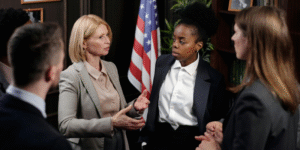Employee relations (ER) form the cornerstone of modern human resource management (HRM), promoting collaboration, engagement, and mutual trust between employers and employees. For multinational organisations like Unilever, effective employee relations are essential for sustaining productivity, innovation, and a strong organisational culture across diverse global operations.
Unilever, one of the world’s leading fast-moving consumer goods (FMCG) companies, employs over 127,000 people across more than 190 countries (Unilever, 2024). Its brands, including Dove, Lipton, and Ben & Jerry’s, are household names. However, behind its global success lies a carefully structured approach to employee relations, built on ethical leadership, collective bargaining, diversity, and employee well-being.
This case study examines Unilever’s employee relations strategy, exploring how it fosters engagement, manages conflicts, and promotes inclusivity, while aligning ER practices with corporate goals and sustainability objectives.
1.0 Theoretical Framework
Employee relations can be viewed through pluralist and unitarist perspectives (Armstrong, 2020). The pluralist view acknowledges that workplace conflict is natural and that collective mechanisms, such as trade unions, are essential to balance power. The unitarist approach, on the other hand, emphasises shared goals and cooperation.
Unilever integrates both approaches. The company promotes shared purpose and values under its unitarist philosophy, yet recognises employee representation through collective bargaining in over 50% of its global operations, reflecting a pluralist stance (ILO, 2023). This duality creates a balanced framework where collaboration and representation coexist.
2.0 Unilever’s Employee Relations Philosophy
Unilever’s ER philosophy stems from its commitment to “doing well by doing good”—an ethos that connects social sustainability with employee engagement (Unilever, 2023). The company’s HR model, known as the Connected 4 Growth framework, aligns employee relations with four strategic goals:
- Purpose-led performance
- Inclusive leadership
- Empowerment and accountability
- Employee well-being
This approach is embedded in the company’s Code of Business Principles, which defines mutual respect, fairness, and non-discrimination as core values guiding employee relations worldwide (Unilever, 2024).
3.0 Communication and Employee Voice
Effective communication and employee voice are at the centre of Unilever’s ER strategy. The company fosters two-way communication through digital platforms, employee forums, and regular engagement surveys. These tools allow employees to express opinions and provide feedback directly to leadership.
For instance, Unilever’s “My Voice” platform is used globally to gather employee insights on topics such as diversity, leadership trust, and inclusion. Results from these surveys are shared transparently, with local HR teams required to create action plans addressing identified issues (Unilever, 2023).
This aligns with research by Purcell and Hutchinson (2007), who highlight the link between employee voice and organisational commitment. By giving employees a sense of agency, Unilever enhances motivation, trust, and retention.
4.0 Collective Bargaining and Trade Union Relations
Unilever maintains long-standing partnerships with trade unions and employee associations, especially in Europe, Africa, and Asia. The company’s commitment to social dialogue is formalised through the Unilever European Works Council (UEWC), which facilitates collaboration between management and worker representatives.
The UEWC meets annually to discuss topics such as safety, pay, restructuring, and employee welfare. During the COVID-19 pandemic, these meetings became critical in negotiating remote work policies and health and safety measures (ILO, 2023).
In Unilever Kenya, for instance, collective bargaining agreements have ensured fair wages, safe working conditions, and dispute resolution mechanisms (Too, 2025). A study by Chepkorir (2025) found that employee engagement in Unilever Kenya was positively influenced by collaborative ER strategies, contributing to higher performance levels.
This cooperative relationship between management and unions reflects a mature ER climate, based on mutual respect and shared responsibility.
5.0 Managing Diversity and Inclusion
Unilever’s ER success is also grounded in its strong commitment to diversity, equity, and inclusion (DEI). Its Diversity and Inclusion Charter aims for gender balance, cultural inclusivity, and equitable career development. As of 2024, women hold 53% of management positions globally (Unilever, 2024).
Programmes such as “Unstereotype the Workplace” promote inclusive behaviour and unconscious bias awareness. Unilever’s partnership with the UN Women’s Empowerment Principles reinforces its position as a global advocate for gender equality.
According to Jayakani and Banu (2024), Unilever’s AI-driven HR systems have further improved inclusivity by reducing bias in recruitment and promotion decisions. This digital approach demonstrates how technology can support fairness and equality in employee relations.
6.0 Employee Well-being and Engagement
Employee well-being is integral to Unilever’s ER strategy. The company’s “Lamplighter Programme”, launched in 2010, focuses on mental, physical, and emotional health. It provides employees with access to fitness challenges, counselling, and resilience workshops.
In line with Maslow’s Hierarchy of Needs (1943), Unilever ensures that both basic (financial security) and higher-level (self-actualisation) needs are met. The company offers flexible work policies, remote work options, and comprehensive medical benefits, contributing to higher morale and lower absenteeism.
A 2024 global engagement survey reported that 87% of employees felt valued by the company—well above the FMCG industry average (Gallup, 2024).
7.0 Conflict Management and Employee Grievances
Conflict management at Unilever is guided by fairness, transparency, and respect. The company uses a tiered grievance procedure, beginning with informal discussions and escalating to mediation or arbitration when necessary. HR managers are trained in alternative dispute resolution (ADR) techniques to prevent escalation.
For example, in India, Unilever established a confidential Speak Up hotline that allows employees to report grievances, including harassment and discrimination, without fear of reprisal. Each complaint is investigated independently, and results are communicated transparently.
This system reflects CIPD (2023) recommendations for effective grievance management, which emphasise confidentiality, impartiality, and speed.
8.0 Challenges in Employee Relations
Despite its strengths, Unilever faces challenges in maintaining consistent ER practices across global operations.
Cultural differences, labour law diversity, and economic pressures sometimes create tension between corporate policies and local realities.
For instance, in 2019, the company faced disputes with unions in India over wage structures, leading to temporary disruptions. Similarly, balancing automation-driven restructuring with employee security remains a continuing concern.
As Schein (2010) notes, sustaining a consistent organisational culture across borders requires adaptive leadership and cultural intelligence, both of which Unilever continues to develop.
9.0 Impact and Outcomes
Unilever’s proactive ER strategy has yielded measurable outcomes:
- High employee engagement: consistently above 80% in internal surveys (Unilever, 2024).
- Low voluntary turnover rates: particularly in managerial roles.
- Reduced industrial disputes: due to strong social dialogue frameworks.
- Enhanced employer brand: regularly ranking in LinkedIn’s “Top Companies to Work For” (2023–2024).
A study by Too (2025) concluded that Unilever’s integrated employee relations model enhances organisational performance, particularly in talent retention, innovation, and sustainability outcomes.
Unilever’s approach to employee relations demonstrates that strong ER practices are essential for sustainable business success. Through a balance of collective bargaining, inclusive leadership, and employee empowerment, Unilever maintains a culture of trust and respect across diverse geographies.
Its practices illustrate how strategic employee relations—grounded in communication, fairness, and shared purpose—can drive both organisational performance and employee well-being. While global challenges persist, Unilever’s commitment to ethical leadership and continuous improvement makes it a benchmark for ER excellence in multinational enterprises.
References
Armstrong, M. (2020). Armstrong’s Handbook of Human Resource Management Practice. Kogan Page.
Chepkorir, T. (2025). Strategic Management Drivers and Performance of Unilever Kenya Limited. Kenyatta University Institutional Repository.
CIPD (2023). Employee Relations in Practice. Chartered Institute of Personnel and Development.
Gallup (2024). State of the Global Workplace Report 2024. Gallup Press.
ILO (2023). Social Dialogue and Employee Participation in Multinationals. International Labour Organisation.
Jayakani, S. & Banu, R. (2024). Strategic Human Resource Management in the Digital Economy. IEEE Conference Proceedings.
Maslow, A. (1943). A Theory of Human Motivation. Psychological Review, 50(4), pp. 370–396.
Purcell, J. & Hutchinson, S. (2007). Front-line Managers as Agents in the HRM-Performance Causal Chain. Human Resource Management Journal, 17(1), pp. 3–20.
Schein, E. H. (2010). Organisational Culture and Leadership. Wiley.
Too, C. (2025). Strategic Management Drivers and Employee Performance: Unilever Kenya Limited. Kenyatta University Repository.
Unilever (2023). Annual Sustainability and People Report. [Online] Available at: https://www.unilever.com.
Unilever (2024). Global Employment and Human Rights Policy. [Online] Available at: https://www.unilever.com.









